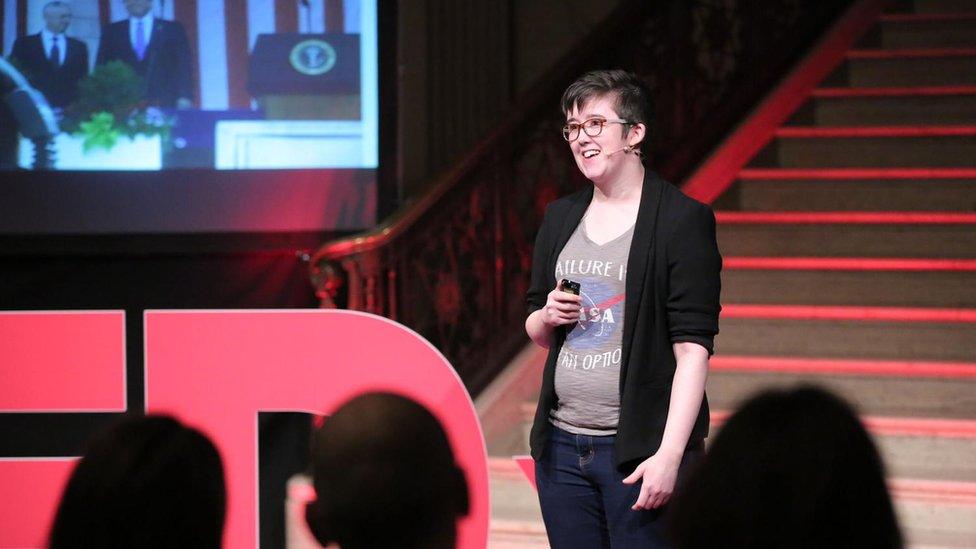Lyra McKee: Ofcom upholds Newsnight phone footage complaint
- Published

Lyra McKee was observing rioting in Derry when she was shot dead
Media watchdog Ofcom has upheld a complaint against “óĻó“«Ć½ Two's Newsnight over the broadcast of images that appeared to show journalist Lyra McKee in her dying moments.
Ms McKee, 29, was shot dead by a New IRA gunman while observing a riot in Londonderry in April 2019.
In November 2019 Newsnight broadcast mobile phone footage of Ms McKee lying on the ground in the centre of a crowd.
The “óĻó“«Ć½ said it accepts "that we should not have used" the footage.
The 11-minute report, broadcast on 5 November 2019, used three seconds of the mobile phone footage, which Newsnight said it had blurred.
The Ofcom investigation into the Newsnight report, titled The Real Derry Girls And The Dissidents, upheld a complaint from Ms McKee's sister Nichola Corner.
She said the report had infringed on Ms McKee's privacy and the family were not made aware it was to be broadcast.
Ms McKee's murder led to an outpouring of grief and calls for politicians in Northern Ireland to return to powersharing
Ofcom found the Newsnight report represented a "very significant intrusion into Ms McKee's right to privacy" and had caused her family a great deal of distress.
"Ms McKee was largely obscured by people standing around her and only a brief glimpse of her trainers was visible," it said.
'Sincere apology'
"However, Ofcom considered that although no explicit detail of injuries was shown, the footage was still of a highly sensitive nature because it showed the final moments of someone who was dying.
"Our investigation found this footage amounted to an unwarranted intrusion into Ms McKee's right to privacy and we have upheld this complaint."
Ofcom said it had factored into its decision that the “óĻó“«Ć½ had previously apologised to Ms Corner for broadcasting the footage.
In a statement, the “óĻó“«Ć½ said it reiterated its "sincere apology to Lyra McKee's family".
"It was never our intention to cause them any further distress, and after we heard from them we removed the footage from the programme and from any further reports.
"The original decision to include the footage was a finely balanced one and we accept Ofcom's finding that we should not have used it.
"We had reason to believe Lyra's family had been informed about the film, but we accept the ruling that we should have spoken to them directly."